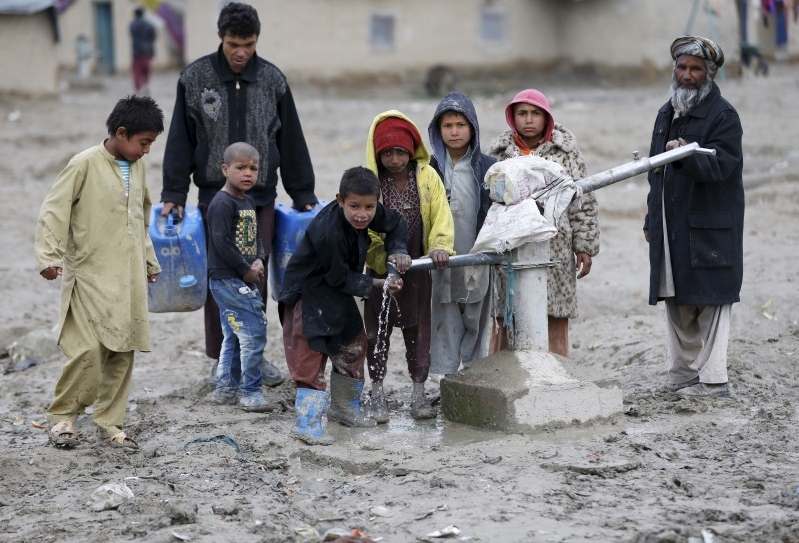
The Red Cross is delivering assistance to greater numbers of Syrian civilians and visiting more detainees in government prisons but the situation remains "dramatic" in besieged areas, a senior official said on Tuesday.
Robert Mardini, regional director for the Near and Middle East, said that the International Committee of the Red Cross (ICRC) stands ready to play a facilitating role in any prisoner release or exchange if agreed by the parties.
"We will be stepping up our response in Syria," Mardini told Reuters in his Geneva office. "It's encouraging because we are able to help more people and we call on all sides to facilitate more."
In the first three months of this year, the ICRC delivered food to 2.6 million people in Syria, 60 percent more than during the last quarter of 2015, he said.
Mardini disclosed that ICRC officials made 9 visits to government-run central prisons last year, which hold more than 15,000 detainees, and two visits this year to prisons with close to 2,000 detainees. It is the only agency with access to Syrian government detention facilities where more than 100,000 people are believed to be held.
"All this enables us to have regular contact, monitor detention conditions and work towards improving them," he said, declining to give details of its confidential findings.
On Wednesday, it will ask donors for nearly 25.2 million Swiss francs, bringing its annual budget to 176.6 million francs for the country now in its sixth year of war. "That is an indicator of our capacity to do more," Mardini said.
The cessation of hostilities declared on Feb. 27 was a "glimmer of hope that was short-lived", which has been overtaken by intensified fighting over the last three weeks, he said.
"The humanitarian situation for people across Syria and in particular in hard-to-reach and besieged areas is dramatic," Mardini said.
This year, the ICRC has carried out 14 cross line aid operations, to hotspots including the divided northern city of Aleppo, he said. "We have an improved ability to cross because of the improved dialogue we have with all sides."
However, an aid convoy was refused to the besieged town of Daraya on May 12, blocking what would have been the first supplies to its residents for more than three years.
"Clearly besieged areas in general and Daraya in particular are a top priority for us but we need to do it properly," he said.
Regarding Daraya, a town of 4,000, he said: "The idea now is to be able to go there with a more significant convoy of course including medical supplies, vaccines, and baby milk, but also food supplies because people are starving there.
"People there are eating grass and growing spinach and things like that, they don't have real food supplies...They have to drink from contaminated sources of water because the water supply was interrupted and it's not possible to disinfect water."






